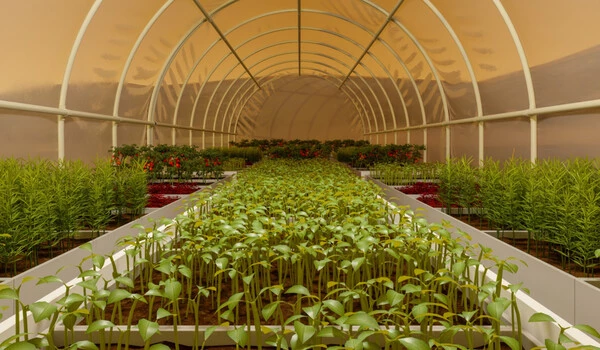Various studies have been conducted by scientists to investigate the possibility of cultivating crops on Mars or other celestial bodies. Growing plants in simulated Martian soil, known as regolith, a mixture of minerals and materials found on Mars’ surface, is one of these experiments. The conditions on Mars, however, present significant challenges for plant growth, including low atmospheric pressure, extreme temperatures, and high radiation levels.
According to new research, future Martian botanists may be able to grow gene-edited rice on Mars.
The Martian, Andy Weir’s best-selling 2011 novel, follows botanist Mark Watney’s efforts to grow food on Mars after becoming stranded there. While Watney’s initial efforts are focused on growing potatoes, new research presented at the 54th Lunar and Planetary Science Conference by a team of interdisciplinary researchers from the University of Alberta suggests that future Martian botanists such as Watney may have a better option: growing rice.
Rice Can Grow and Survive in Martian Regolith with Challenges That Could Be Overcome Through Stress Control, as stated in the team’s abstract,One of the most difficult challenges to growing food on Mars is the presence of perchlorate salts, which have been found in the planet’s soil and are generally thought to be toxic to plants.
An important part of the research will be determining to what degree perchlorate may be leeching into the plant from the soil. Farther down the road, the researchers would like to introduce rice into a closed habitat chamber and place it in a Mars simulation chamber that replicates the temperature and atmosphere of the planet.
The team was able to simulate Martian soil using basaltic-rich soil mined from the Mojave Desert, using the Mojave Mars Simulant, or MMS, developed by NASA and the Jet Propulsion Laboratory.
The teams then grew three rice varieties, one wild-type and two gene-edited lines with genetic mutations that improve their ability to respond to stress, such as drought, sugar deprivation, or salinity. In the MMS, these varieties were grown alongside a regular potted mix and a hybrid of the two. Plants were able to grow in the Martian simulant, but they were not as developed as those grown in potting soil and hybrid mix. Replacing just a quarter of the Martian simulant with potting soil resulted in improved development.

The researchers also tested the amount of perchlorate in the soil, discovering that 3 grams per kilogram were the limit beyond which nothing would grow, while mutant strains could still root in 1 gram per kilogram. Their findings suggest that genetically modified rice may be able to find a home in Martian soil.
Experimenting with a newer Martian soil simulant called the Mars Global Simulant, as well as other rice strains with increased tolerance for higher salt concentrations, will be the next step.
An important part of the research will be determining to what degree perchlorate may be leeching into the plant from the soil. Farther down the road, the researchers would like to introduce rice into a closed habitat chamber and place it in a Mars simulation chamber that replicates the temperature and atmosphere of the planet.
Whether or not humans ever colonize Mars, the team’s research could have global implications. Abhilash Ramachandran, a postdoctoral fellow at the Arkansas Center for Space and Planetary Sciences and the abstract’s second author, noted that he spoke with an Australian researcher from an area with high salinity soil and saw their work as a potential way to grow food there. “We could use Earth as a terrestrial analog before sending the seeds to Mars,” he added.
The project began when Peter James Gann, a doctoral student in cell and molecular biology, met Ramachandran for coffee in the student union, according to the abstract’s first author, Peter James Gann. “He was new to the university, and we discussed what we were doing in our respective laboratories.” We decided to experiment with plants because he works on planetary science and I specialize in cell and molecular biology.”
















